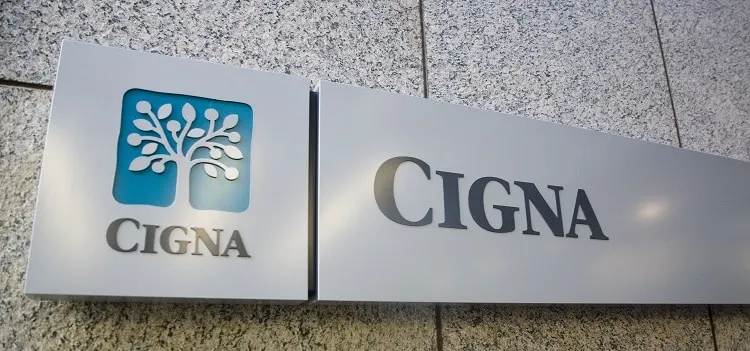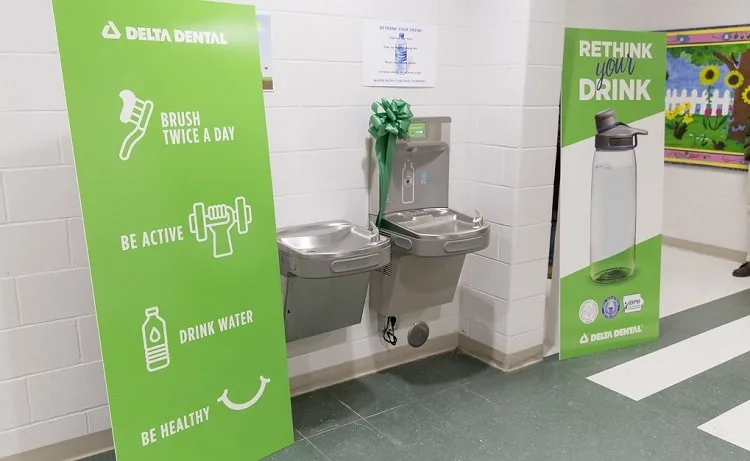- The Oral B 3000 vs 5000: Which Electric Toothbrush Is Better? - February 27, 2022
- Kid Tested and Dentist Approved: The Five Best Natural Toothpaste for Kids - February 17, 2022
- Need Orthodontic Treatment, But Not a Fan of Braces? The Five Best Braces Alternatives Available - February 7, 2022
Whether it’s for your car or for your health, insurances are the luggage you just can’t leave behind. Most people don’t treat them as seriously as they should be treated — they could actually save you tens of thousands of dollars if you’d only choose the right plans.
We’re sure that if you’re new to the whole jazz that insurances are surrounded by, dental insurances are the ones that you’re the most curious about. After all, why’d you need to get your teeth insured, right?
Well, be prepared, for we’re about to tell you why dental insurance is one of the most important health insurance plans out there and why you need them.
And if you’re familiar with that part, hold on! We’ve also got a dozen of tips and insights to help you choose the perfect dental savings plan, so you don’t have to waste your time researching a bunch of shady options. Save your teeth – and your time!
What’s Dental Insurance All About, And Why’s It So Important?
To put it quite simply, dental insurance is used to reduce and pay off expensive bills that come along with dental procedures.
As a matter of fact, a simple cleansing procedure at the dentist’s office could cost a dent of about $200 in your wallet unless you have your nifty insurance coverage. With insurance, that very same procedure would only cost you one-third the price.
Yep, it makes that big of a difference.
How Dental Insurance Works

Although a family dental plan has a lot of complex things that you have to agree with before you sign up, they work so simply that you could learn it all in less than five minutes. In fact, that’s what we’re going to do right now!
Like other forms of insurance, dental insurance companies will pay for your next trip to the dentist whenever you need it. Either that or they may give you a huge discount. Think about it.
One day, you might need to face a really bad toothache. If it’s a rotten tooth that has to be removed, you might pay up to $600 just for a single tooth extraction.
But the right dental savings plan will let you save at least half of that. Some might even let you have it for free.
Dental insurance companies get the money for these from the insurance subscription and deductible fees that you, and other people like you, pay in regular intervals.
They also form agreements with a network of partnered dentists, along with other unpartnered dentists, so they could agree on which procedures will be covered and which ones won’t.
Thanks to these, insurance companies become better able to save money from extra services which could be better used for another person’s necessary dental procedures.
What Dental Insurances Cover And What They Don’t

When it comes to choosing a family dental plan, there are three things that you should always remember:
- Preventive Care
- Orthodontic Care
- Restorative Care
While this can seem initially overwhelming, it’s fortunately not too complex. Each has its own umbrella of conditions and considerations that they cover, allowing you to know precisely what their treatment includes.
Preventive Care
Preventive care refers to those things that keep your mouth healthy. The service is called oral prophylaxis and works by removing the things in your mouth that you can’t just remove at home.
They could, for instance, remove hardened plaque and tartar under the dental roots where your toothbrush can never reach.
Some insurances give these free sessions of full oral prophylaxis every year. The goal of preventative care is to help ensure you maintain your good oral hygiene to avoid issues in the future.
Orthodontic Care
The other type of care is orthodontic care. This refers to those services that fix your teeth and jaw.
If you ever want to have braces or clear plastic aligners placed on your teeth, then you should into a dental savings plan that covers orthodontic services. Your regular brace adjustments also fall under this category.
Also, you should see if the company also covers anesthesia. While many do cover these, most cover only the most basic form: general anesthesia. If you need to be sedated for a specific procedure, then you may have to shell out some cash for that.
Restorative Care
Lastly, restorative care tends to be quite rare when it comes to dental insurance. But that does not mean they’re never covered.
If you can’t make it out from its name, restorative care is for those times when there’s nothing you can do but remove the tooth and replace it with an implant or denture.
Most family dental plans don’t cover these because they are considered cosmetic services. However, that all depends on whether they’re necessary for your case or not, regardless of cosmetic value, and if the company is willing to pay for it.
Who Should Get Dental Insurance?

Ideally, everyone should have some form of dental insurance. It’s not just about the young and the old, or the poor and the rich.
Everyone should have one because they can all get something out of this. But, of course, there are some people who may need it more than others. For these people, dental health is a matter of financial Russian roulette with their mouths.
By that, we mean two types of people: the elderly and those without a lot of money.
Obviously, the more you would need to go to the dentist, the more you will save in dental fees through insurance. However, some dental insurance companies do tend to have maximum annual capacities and set deductible fees.
They will only cover a certain amount of fees per year, so they won’t lose too much money when someone suddenly needs a ton of dental services.
On the other hand, the other group may seem quite counterintuitive. But the thing is, if all you can afford is a single trip to the dentist every year, then you might as well get a low-cost plan.
That way, you could either save more every year or get more services for the same price.
While on this topic, however, you still have to think that there’s more incentive to buy dental insurance than to not have one at all. That is unless you don’t plan to go to the dentist at all.
What To Look For In A Dental Insurance Company

So here’s the thing with these kinds of companies: they don’t all offer the same services. In fact, they all work so differently that it’s sometimes an option to buy separate plans from different companies.
There are six primary things you should look for when considering dental insurances. These include:
- Coverage
- Price
- Annual Capacity
- Dentist Network
- Waiting Period
- Package Policies
If you want to get the best out of your dental savings plan, then you absolutely need to look for these six things before you sign an insurance contract. Let’s go ahead and take a closer look at what they entail.
Coverage
The first thing you should look for in a dental insurance company is their coverage. You should go with deductible options that fit your budget comfortably. For instance, if you want to wear braces, then you should choose a company that covers orthodontic care.
On the other hand, if you want your teeth to stay healthier for longer by getting checkups twice a year, then go for one that covers most or all services under preventive care.
Price
Next up, you should choose one that you can comfortably afford. Dental insurance is only useful if you can afford to pay for it. So choose one that fits well under your income.
You should also make sure that the dental insurance company you choose won’t cost more than you will ever pay for your dentist in a given year. If that’s the case, then you shouldn’t be getting dental insurance in the first place.
Annual Capacity
Here’s one thing that some folks first see the first time they get any form of insurance. Annual capacity refers to your insurance limit over a year. All insurance companies need limits, or they might go bankrupt before they even earn any profit.
Be sure to choose a good annual capacity that fits well for your needs. Usually, those that cover more usually cost just as much.
So if you find yourself having too much leftover after a year, then you might want to downgrade a bit unless you want to have some extra in case something bad happens.
Dentist Network

For dental insurance companies, their network plays a large role in how well they might cover your dentist’s services. Basically, you will save much more if you go to a dentist that is a part of their network, also called an in-network dentist.
On the other hand, out-of-network dentists might end up costing you more than your insurance plan.
If you already have your own dentist before getting dental insurance, then it would be best if you ask them which dental insurance company they are partnered with.
Waiting Period
However, you may want to choose a company before choosing your own dentist. Dental insurance companies all have different waiting periods before you could use the insurance benefits that you’ve just bought.
This period could last from weeks to months. Many others could go as long as a full year before anyone could use them.
But if you have an urgent need and plan to keep your subscription anyway, there are other companies that have no waiting periods and nominal deductible fees.
Package Policies
Lastly, all of these things except for their network usually come in the shape of a family dental plan or specific package policies. This way, you could modify your insurance coverage to either cover more services or bring down your costs.
Each company offers different policies. So you might want to do more research hereafter knowing about their prices and coverages.
Our Recommended Dental Insurance Companies
Now that you know everything you need to know about choosing the right company, here are a few dental insurance companies that we recommend depending on your needs.
The All-in-one: Cigna

- Covers restorative care and orthodontic care
- Package policies can fit various price ranges
- No copayment and deductibles for preventive care
- Limited coverage for implants.
No list about dental insurance companies should miss Cigna. This company gives you exactly what you pay for. Starting at $19, you could get insurance for preventive care, which you could upgrade to cover other services.
And unlike most other companies, you won’t have to pay anything if you get oral prophylaxis. As long as you go with a dentist covered by their network, then you’re good to go!
However, you may want to choose a different company if you are planning to get implants. Cigna only offers limited coverage for implants. In fact, they can only cover one new implant per calendar year at best.
Biggest In The Country: Delta Dental

- Covers all US states and territories
- Has featured state dental insurance
- Covers 50% of orthodontic care costs
- Largest dentist network
- Some policy packages have no waiting period
When it comes to network support, Delta Dental has the largest one in the United States. Every single place in the US that has a dentist’s office likely has an in-network dentist for Delta Dental.
And with their huge size comes their large coverage. Depending on the dental savings plan you buy, they could cover your implants, crowns, and root canals at half the price.
Meanwhile, they cover the procedures for preventive care at full price. You won’t be entitled to pay any deductibles for oral prophylaxis or dental x-ray!
For The Soldier And Their Families: USAA

- Best customer service
- For veterans, active-duty personnel, and their families
- 12-month waiting period
- Covers braces
- Covers more than just teeth
USAA is a private company that provides its services to people from the military and their family members. It goes quite a bit on the better side of customer service and offers a $200 annual capacity for orthodontic treatment.
But if you need more, you could raise it up to their $ 2,000-lifetime capacity. And unlike the other companies in this list, they also cover braces and implants. Before you can avail of their services, however, you will have to wait for 12 months.
This company is actually a larger company that covers more than just dental care. USAA also offers other kinds of insurance, from automotive to home insurance; they have it all. Needless to say, this is a service that every soldier should apply for.
Frequently Asked Questions
Answer: Most full-coverage dental insurances cost about $360 a year, but the costs are subjected to increase depending upon your insurance plan.
Answer: Even if your dentist isn’t a part of your insurance network, you can still receive your insurance coverage.
Unlike regular payments to an in-network dentist, you will have to pay an out-of-network dentist the full payment for the treatment/procedure, and your insurance company will later directly provide you with a subsidy based upon your coverage.
However, make sure that your dentist accepts insurance coverages as an added verification before your treatment.
Answer: Yes, you certainly can! However, you should always look into the facilities provided by your company/employers. If they offer a health plan, then dental insurance is usually covered by the plan and you needn’t purchase a new one.
You should keep in mind that individual plans offer better coverage, so you can always purchase a new plan based on your own needs.
Answer: On average, dental insurance costs anywhere between $15 – $50 a month, based upon your plan.
Answer: Yes, dental insurance is certainly worth getting as it helps pay off extremely costly routine bills from the dentist. Based upon your dental savings plan, you could also heavily reduce the final fees of many other procedures or surgeries too.
Without dental insurance, your bills would be reaching the thousands, but with insurance, you’d only have to pay about 1/3rd of the original cost.
Answer: Yes, you can! Based upon what each plan offers, you could purchase a couple of different plans that provide you with the maximum combined coverage/benefits at the very same time, and from different companies too!
Answer: The waiting period for dental insurance is a period in which the insurance company will not be paying for your coverage.
This period starts when you first purchase the insurance plan, and depending on your chosen plan, it may last for up to a few months to a year or two.
Final Thoughts
While looking for dental insurance, your personal needs should be your first consideration.
Choosing a family dental plan that suits everyone’s future needs in the family will be an ideal and cost-effective option for you. You can have a talk with your dentist about this too.
Another factor you should keep in mind is that going for a reputable insurance company over a company without an established brand will save you a lot of hassle in the future.
It’s always a good idea to do thorough research before deciding which company is the right one for you.
If we had to choose one dental insurance from this list to choose from, we’d have to go with Cigna.
While USAA is a fantastic company, it’s more exclusive (as it’s limited to military families), and not everyone has access to it. Because of that serious limitation, our recommendation instead turns to Cigna.
Our vote comes from the fact that they have such a huge network of dentists — over 93,000! — and they have customer service available 24/7, even on holidays and weekends.
They also cover all preventative care without deductibles or copays, and because you can choose to add on orthodontic services into your insurance package, that makes them a clear winner in our book.
At the end of the day, the best insurance plan for you is one that minimizes unnecessary costs and suits your dental care needs perfectly. Keep the factors that we mentioned above while looking through the plans, and you should be good to go!

